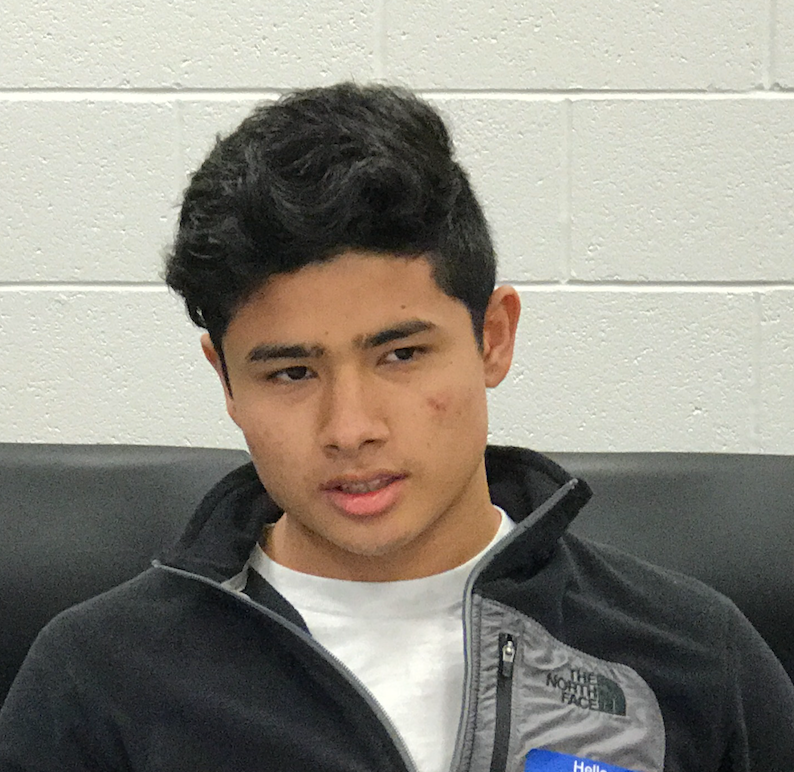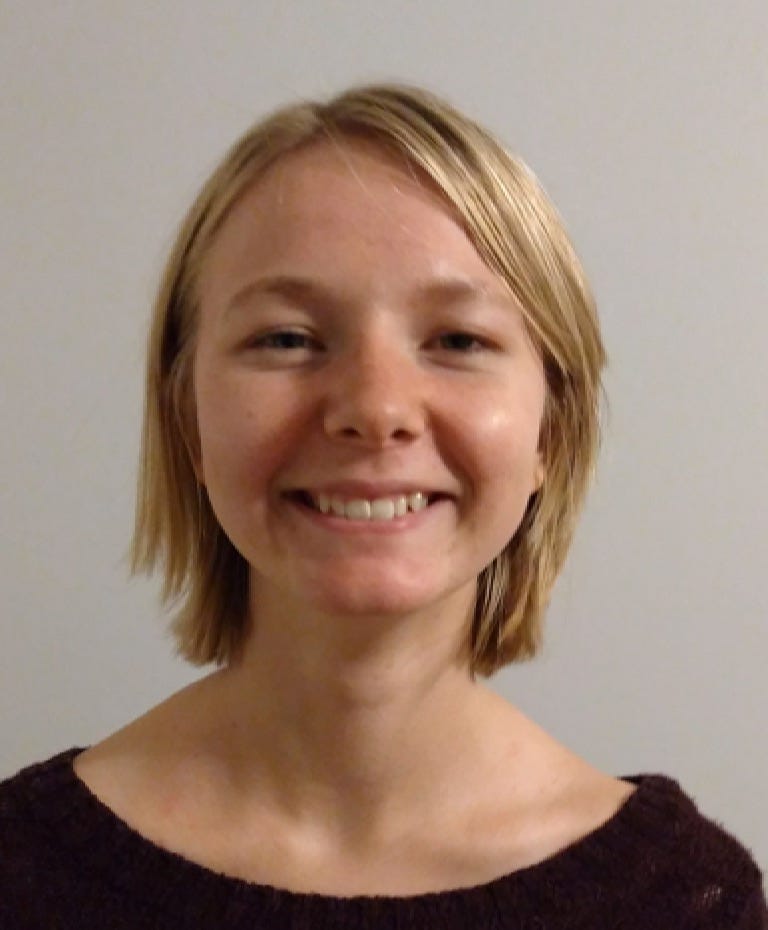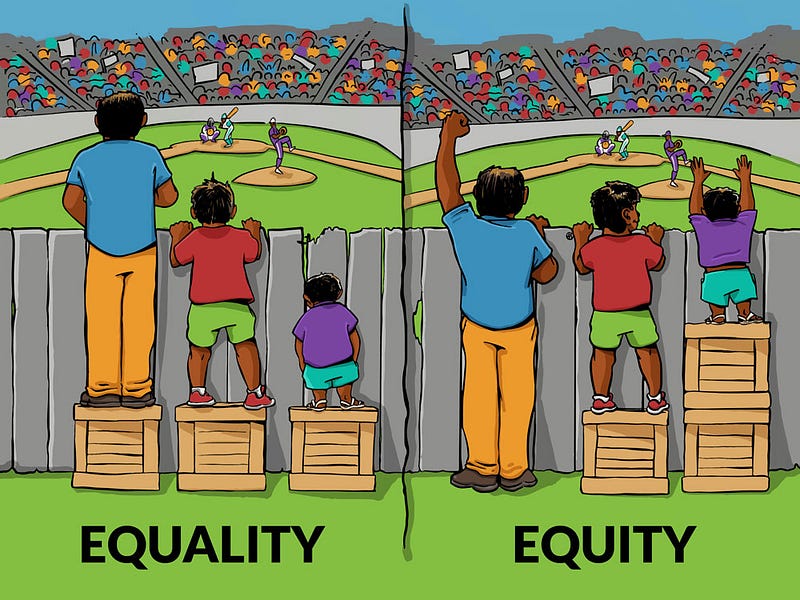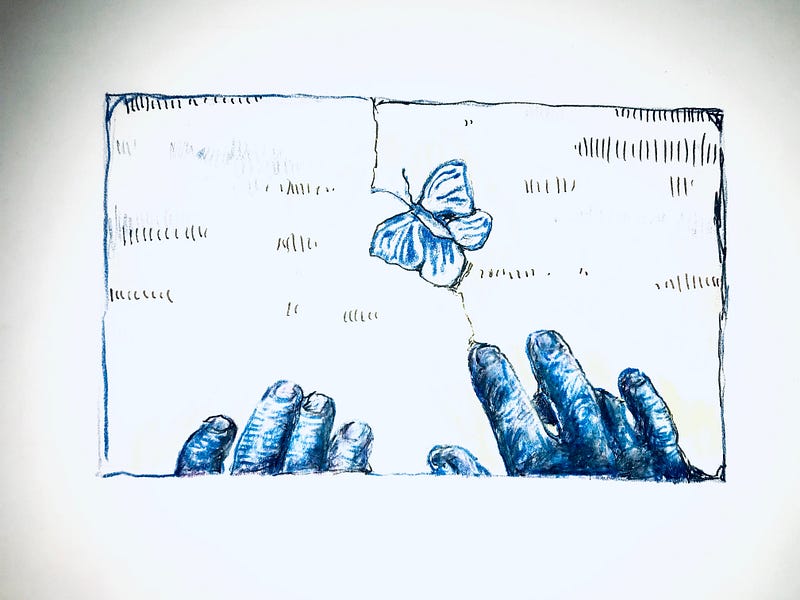Dhiren Walkley is a senior at Fern Creek High School. Eight years ago, he came to Louisville from Nepal as a refugee, but he is originally from Kuwait. He recently participated in a roundtable conducted by the Prichard Committee Student Voice Team. Following are excerpts from our conversation. We have edited the transcript for clarity and space.

Coming to America
My family lived in a refugee camp. I had a disabled brother, and my father had to go out of the country for work, so he would stay there for about a year and send money back and come back for a month and then go back again. And when we heard about how the International Organization for Migration was sending people to America, we signed up for it, and we had to go through a process. They did medical tests, background tests, everything. And then when we came here, it was different.
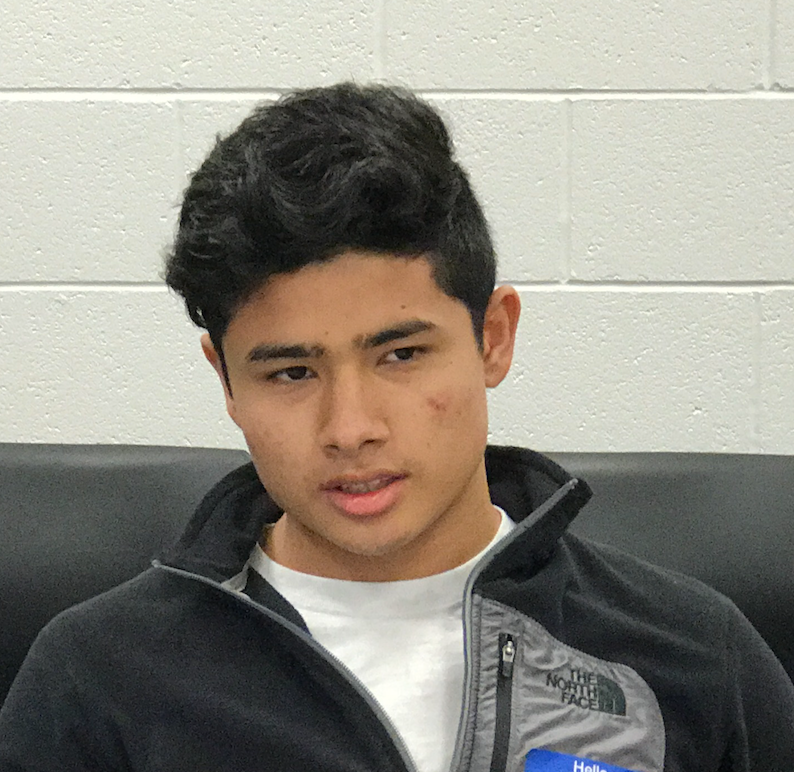
We came here for a better life. Where we came from, there was nothing. They sent me out for a better education. The camp where we lived, I wouldn’t say the education was bad, but we had to sit in the floor and write on a piece of paper. There were no desks, no nothing. It was harsh there, and when we moved here, we had trouble with adjustments.
I didn’t know much, and I was about nine years old. Getting off the plane and getting in a car for the first time, all I saw was lights. It was night when we came in. It was like five days when I couldn’t find anyone to talk to, no friends, no nobody. So it was actually really depressing when I first came here and my first impression was bad.
As I got used to it and started making friends, it got better, and I started learning, which was even better. And right now, I really like the U.S. because it offers education and medical for people. When we were in Nepal, the medical aspect wasn’t good. Now I see everything that the U.S. offers.
When you’re an immigrant, you feel odd. Because you do things weird. You’re living a way of life that people aren’t used to. So they see you as an outcast. If they don’t, it’s seen as very odd, the things you’re doing, the way you are, the way you dress, even.
[The] education system and everything, I’m very grateful for it. There are people still stuck in my country who don’t have the same opportunities as me. That’s why I [am] striving for postsecondary education.
The U.S. Education System
When I first started going to school, not in Fern Creek, but going to school in America, it was hard because there was a lot of bullying, and I didn’t know the language, which made it even worse. But it didn’t really affect my school performance. There wasn’t much of a Nepali population here, so they didn’t really know how to deal with Nepali kids. My ESL class was full of Hispanics, so it was geared towards them. But at the school I went to, the teacher was really good, so she helped me through it.
I didn’t know about AP classes until the end of my freshman year, when I heard a student talking. And so my counselor came to my classes to design our new schedule for next year, but before that, I hadn’t known about AP classes.
I want to pursue my education and get a degree in either medicine or business; I’m still figuring this out. I have to go to college because that was one of the big reasons we came here, to have a better education and a better life. College is a gate to a better life, that’s how [my parents] see it.
The Politics of Immigration
I think there’s an anti-immigrant political movement, but all immigrants want, the reason they want to come here, is to have a better life and to work hard, to get the things for their children that they couldn’t have.
The refugee ban and everything, in my opinion, shouldn’t happen because refugees have nothing to go to. I was a refugee. We received rations as food. We didn’t have jobs, and our government wasn’t very good. If we went any place outside the camp, we were seen as outcasts. My family was kicked out of Bhutan and moved to India for about six years. Then they went to a refugee camp and had me.
In medical terms, it wasn’t good. My brother has cerebral palsy, and he has seizures. When he was born, he seemed fine, but as he got older, he started having so many problems. He started having seizures many times a day, and we couldn’t provide medication for him. That’s one of the reasons refugees and immigrants want to come here, so they shouldn’t be banned. This country was made by immigrants. They are working hard to achieve a better life here.

This interview was conducted by Zachariah Sippy, Emanuelle Sippy, and Pearl Morttey on March 10, 2017. It was transcribed by Sadie Bograd and edited by Eliza Jane Schaeffer.
This piece is one of many in the Forum’s Refugee and Immigrant Series. These students have inspiring and sometimes heartbreaking stories, but their voices are all too often overlooked. Over the course of the past few months, the Student Voice Team has spoken with refugee and immigrant students to not only gain a better understanding of their personal experiences but also hear their take on the new Administration and the worldwide refugee crisis. Over 21,000 students speaking 139 different languages receive Kentucky’s English Learning services which are offered in 70 school districts spanning the Commonwealth.
The opinions expressed on the Forum represent the individual students to whom they are attributed. They do not reflect the official position or opinion of the Prichard Committee for Academic Excellence or the Student Voice Team. Read about our policies.


